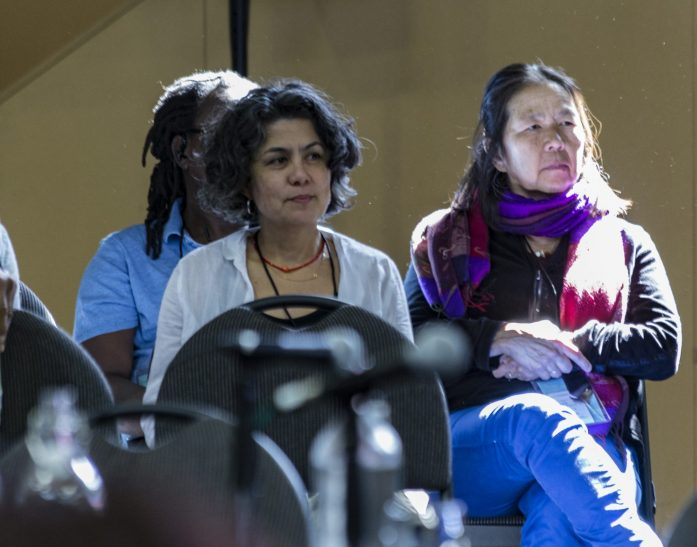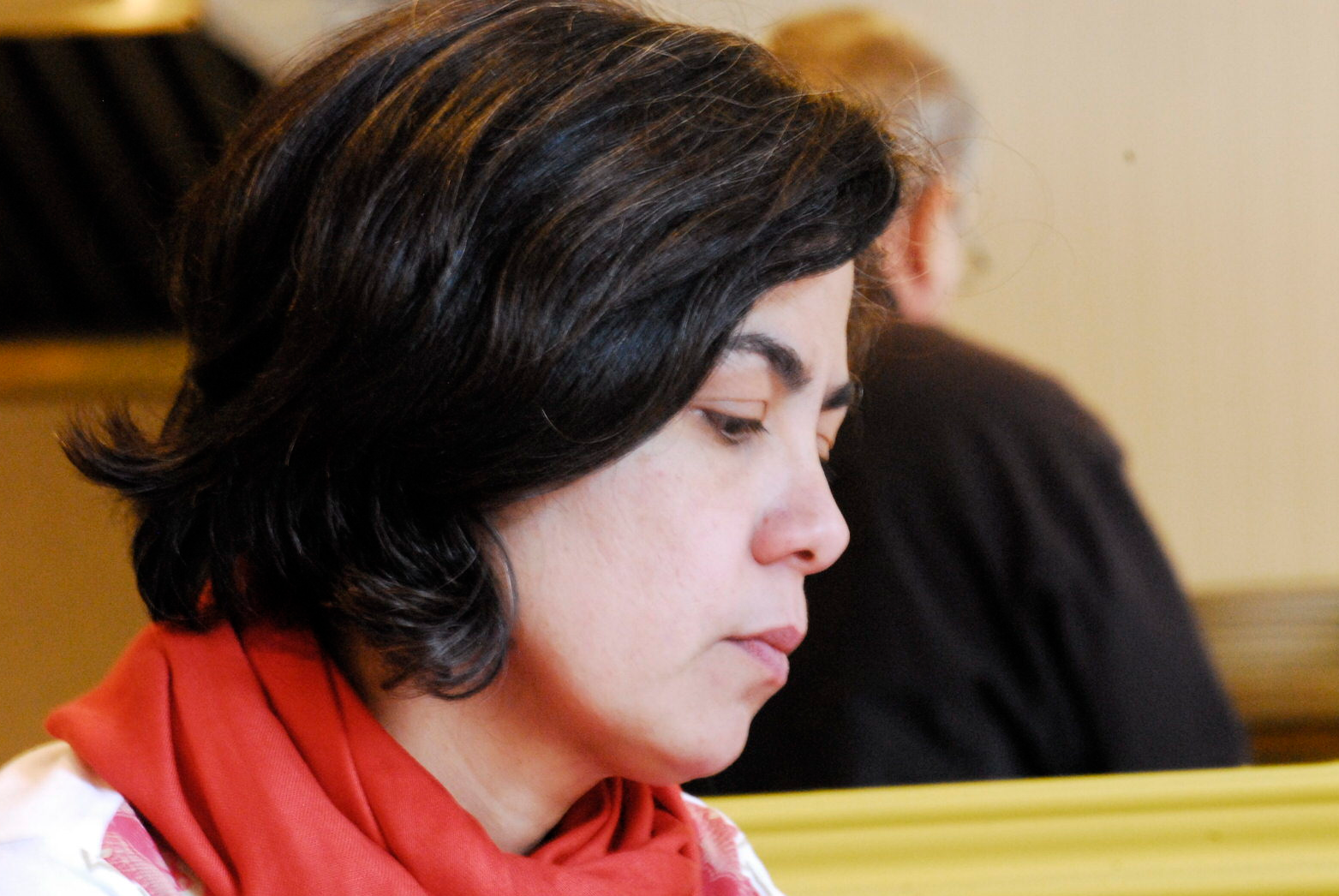 Helena Martin Franco and Janet Lumb at the PC/Cp Gathering
Helena Martin Franco and Janet Lumb at the PC/Cp Gathering
2017 on Lekwungen territory. Photo credit: Kirk Schwartz.
One ephemeral island. Four Spanish-speaking women. Brought together for the very first time on unfamiliar First Nations territory, we were surrounded by a constantly shifting tide of people, emotions, and perceptions. In such a context, one could have perceived our meeting as being fraught with danger, but the Arte LatinX workshop proved to be a comfortable setting for sharing our stories.
We began by describing our various and ever-evolving artistic practices, a range of activities that included visual art, theatre, literature, education, and activism. We talked about how we first “landed” in Canada and more particularly in the professional arts community. We quickly identified the stereotype that limits our potential to embody multiple, evolving, and complex roles—a stereotype we did not choose, but which is difficult to shake off. We also observed that our cultural baggage prevents us from being equitably represented in professional bodies. We learned that our Canadian host’s lack of knowledge about our homelands results in irreparable breaks in the career paths we had already built prior to arriving. And we agreed that, professionally speaking, dialogue among cultures in Canada does not take place on a level playing field. In such a context, the only way to ensure the survival of our artistic practices is to promote radical change—basically starting from scratch—while at the same time resisting assimilation, whether consciously or not.
This is how we can assume our “foreignness, “not as an identity, but as a starting point, a tool for activism and a way to relate to the art community. Adopting this attitude will allow us to design innovative strategies for developing our creative and dissemination processes.
Lina de Guevara is an actor, director, and theatre teacher who approaches education from an intercultural perspective. She develops spaces for the creation and sharing of stories from migrant communities. Carmen Aguirre is an author, actor and playwright. By writing and taking centre stage in her own stories, she is able to overcome limits imposed by cultural hierarchy in the professional milieu.
Our youngest participant, Janet Romero-Leiva, creates and disseminates her art in Toronto. Highly attentive to her surroundings and her community, Janet is building a socially-engaged, cross-cutting practice as a painter and writer. Based on an interest in the visual languages of Latin American muralists, she links issues related to origin, immigration, and gender identities from a queer perspective. As for myself (Helena Martin Franco) although my painting career came to an abrupt halt after I arrived in Montreal, I have redirected my creative energies into interdisciplinary autofiction. I create self-referential creatures as a way to reframe certain stereotypes that inhabit institutional discourse—stereotypes that reinforce a completely distorted perception of the “other,” as if an entire continent were suddenly split in half.
Translated by Don Sugden, reviewed by Breanna Fabbro

Helena Martin Franco, (Cartagena, Colombia) has lived and worked in Montreal since 1998. She holds a master's degree in visual and media arts from UQAM. Her feminist practice explores the crossover between artistic processes, as well as the hybridization between traditional techniques and new technologies. In collaboration with the La Redhada (Colombia) and Spider (Quebec) visual arts dissemination collectives, she creates, coordinates, and curates exhibitions in order to encourage the meeting and exchange of artistic practices, particularly between Canada and Colombia.